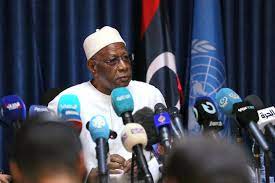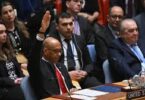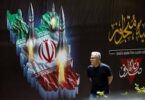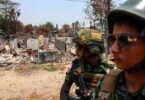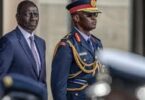Washington (Agencies): The UN special envoy to Libya told the Security Council on Tuesday that he had engaged in shuttle diplomacy between political and military groups across the country in an effort to bring about a consensus on holding key elections later this year.
Abdoulaye Bathily said his efforts had been positive in bringing warring Libyan groups to commit to continue negotiations in an effort to hold inclusive legislative and presidential elections and unify the country.
“I call on Libya’s leaders and all relevant actors to follow their stated commitment to elections with tangible, mutually acceptable solutions to achieve this,” he added.
“Institutional and political leaders have also taken action to move the political process forward. I urge Libyan leaders to meet the people’s expectation to choose leaders this year by delivering on all their commitments.”
Bathily called for supporting the people of Libya in achieving their “legitimate aspiration” for peace, stability and prosperity.
Political factions in the country have been vying for power since the fall of former leader Muammar Gaddafi in 2011.
Despite attempts to resolve the differences between warring groups and reach a consensus over power-sharing, Libya continues to be bitterly divided between the Government of National Accord in the capital Tripoli and an administration in the eastern city of Benghazi allied with Gen. Khalifa Heftar, who commands the Libyan National Army. Each side is supported by various regional and international parties.
Bathily said the two chiefs of staff of the armies of the western and eastern regions, Gen. Muhammad Al-Haddad and Gen. Abdel Razek Naduri, met in Benghazi earlier this month and affirmed their commitment to furthering the reunification of their militaries and supporting the electoral process.
Bathily said there was “a new dynamic” in Libya, and an intensive consultation had taken place among security actors.
“All international partners should support the current momentum and speak with one voice on Libyan matters,” he added.
Bathily described the human rights situation in the country as “tense,” with its civic space “further restricted.”
He added: “I urge Libyan authorities to rise to their human rights obligations, end impunity and provide more space for the action of civil society organizations.”

